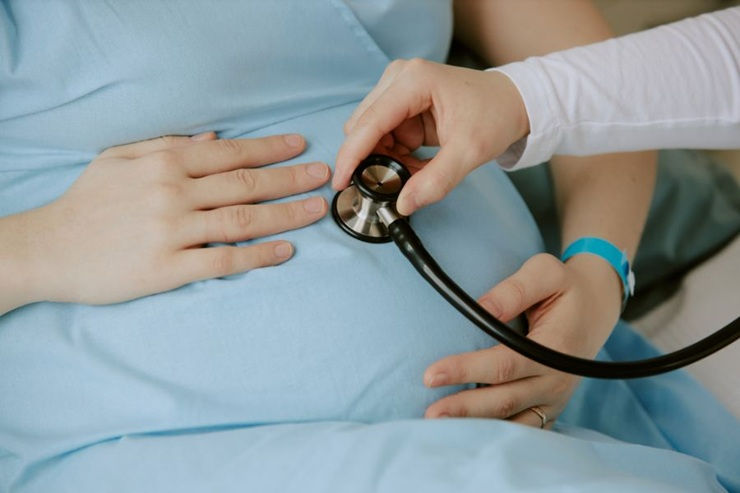Pregnant women are missing vital nutrients, study finds
- Dec 6, 2023
- 2 min read

New research shows most pregnant women are not getting the nutrients they and their babies need from modern diets.
An international study has shed new light on the health of expecting mothers from high-income countries.
It found nine out of ten women lack vitamins needed for a healthy pregnancy. Experts warn this will likely worsen as more people turn to plant-based foods.
Prof Keith Godfrey from the NIHR Southampton Biomedical Research Centre (BRC) was one of the study’s lead authors. It also involved researchers from Singapore and New Zealand.
Their findings are published in PLOS Medicine.
Global research
Vitamins and minerals are nutrients your body needs to stay healthy.
Making sure you get the right nutrients is especially important during pregnancy. They are essential for babies’ growth and development.
This study analysed the nutritional status of more than 1,700 women. It was led by researchers at the University of Southampton (UoS), University of Auckland (UoA), National University of Singapore and the Agency for Science, Technology and Research.
Their analysis showed most were missing essential nutrients found in abundance in meat and dairy products. These included vitamins B12, B6 and D, folic acid and riboflavin.
Widespread concern
The researchers are concerned about the number of women with vitamin deficiencies.
Prof Godfrey is a Professor of Epidemiology and Human Development at the University of Southampton. He also leads the Nutrition, Lifestyle and Metabolism theme in the NIHR Southampton BRC. He explained:
“The push to reduce our dependence on meat and dairy to achieve net-zero carbon emissions is likely to further deplete expecting mothers of vital nutrients. This could have lasting effects on unborn children.
“Our study shows that almost every woman trying to conceive had insufficient levels of one or more vitamin. This figure is only going to get worse as the world moves towards plant-based diets.
“People think that nutrient deficiency only affects underdeveloped countries. But these results show it is also affecting the majority of women in high-income nations.”
Lacking vital nutrients
The NiPPeR study involved 1,729 women from the UK, New Zealand and Singapore. They were all aged between 18 and 38.
The researchers looked at their nutritional status at conception. They then followed many of the women during later pregnancies.
Results showed that nine out of ten women had marginal or low levels of folate, riboflavin, vitamins B12 and D around the time of conception. Many developed vitamin B6 deficiency in late pregnancy.
The University of Auckland’s Prof Wayne Cutfield was a co-author of the study. He said expecting mothers should be given over-the-counter multivitamins to reduce nutrient deficiencies.
Prof Cutfield added: “The wellbeing of a mother ahead of conceiving and during a pregnancy is very important. It has a direct influence on the health of the infant, their lifelong physical development and ability to learn.”
This trial was the first to show that over-the-counter supplements can reduce vitamin insufficiencies during the preconception, pregnancy and lactational periods.
Associate Professor Shiao-Yng Chan at the National University of Singapore said:
“If we continue to move towards diets with less meat and dairy products, vitamin deficiencies will continue to grow. This will continue to be the case unless women start taking more supplements or receive advice about nutrient-rich foods.”



Comments